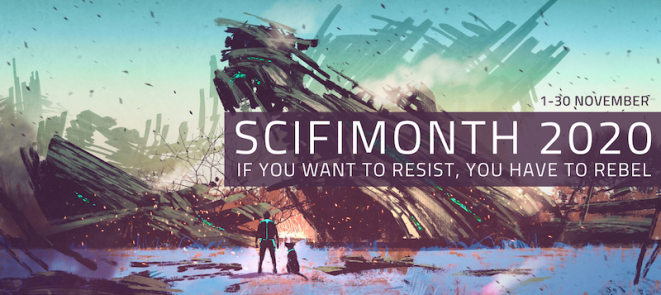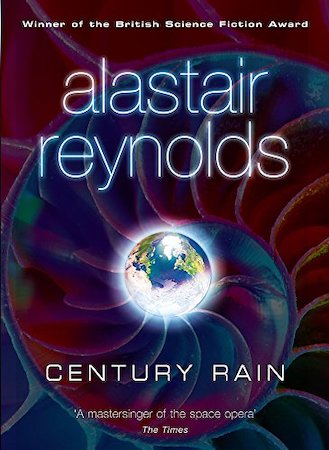While still narratively intriguing, the fourth and final season of BSG looks somewhat uncertain of the direction it wants to take and that translates into an uneven pacing that on my first viewing, due to the weekly distance between episodes, resulted in some confusion on my part: the series’ trademark sentence about the Cylons having a plan made me often wonder whether the creators truly had one, as well… However, this rewatch fared better in this instance, but that did not save the season from feeling less focused than its predecessors.
Season 3 ended with momentous revelations, like the identity of four out of the Final Five Cylons and the return of Kara Thrace, previously believed dead and now declaring she knows the way to fabled Earth: here is where the narrative arc stumbles a little, devoting a considerable space to her mission to retrace that path, apparently buried in hard-to-retrieve memories. It’s clear from the start that this might turn out to be a wild goose chase, and the microcosm present on the ship tasked with the search mirrors perfectly the strain and discord that are running rampant in the fleet, while Kara’s disconnect from reality tarnishes the image of a character that until this moment had generally been depicted as a resolute, if headstrong, one.
A little more interesting is the narrative thread concerning the four newly-aware Cylons and their stress in grappling with this revelation and their past as members of the Fleet: just imagine having hated someone all your life, only to discover that you’re one of them… This theme becomes all the more disturbing once the internal conflict dividing the Cylons brings a rebel group to offer an alliance to the humans and help in finding Earth: as I often say, strife it the motivator that carries the best character development, and this is no exception. Humans, already divided and frayed at the edges after years on the run, now find themselves on the cusp of a momentous decision: accept the help of their former enemies, of the creatures that decimated their numbers, or bow to the law of diminishing returns and know that their journey might end in death.
This struggle – moral, political, practical – brings on one of the best, most adrenaline-laden narrative arcs of the season, as an attempted coup shakes the Fleet to its core and brings mutiny to the very heart of Galactica, with its accompanying trail of fighting and bloodshed. Hard as it is to witness, this grim segment moves the story back toward its human (in the wider sense of the word) dimension and portrays both sides of the dilemma from an emotional standpoint, using characters we have learned to know well and showing us different (if not always palatable) sides of their personality.
The final episodes of the season are certainly satisfying in that they give a closure to the long arc of the survivors looking for a new home where to rebuild a civilization, but at the same time they are imbued with more of the spiritual material scattered throughout the story, and I’m not sure that these elements work here as seamlessly as they previously did: where the survivors’ polytheistic faith, and the Cylons’ monotheistic credo, were threaded into the tissue of the epic, giving both groups a spiritual basis to draw from, toward the end of the season we are also treated with “angelic” figures sent to oversee the travelers’ path and to keep observing them as their history develops through the ages of the new world, and I’m still struggling to figure how they fit into the overall narrative.
Where the ending worked for me, however, was in its emotional content, particularly in the series of goodbyes fueling the last portion of the story: Adama’s parting with his beloved Galactica, whose structure finally gives up after long years in service and the beatings it took during the long run; the last journey of the Fleet’s ships, headed toward the sun so as not to leave traces of more advanced technology on a new, primitive world; the breaking of the crew into separate groups, to better insure the survival of the new settlements. Above all shines the final goodbye between Adama and a dying Roslin (which I chose to celebrate with the soundtrack fragment linked at the end of the review): for someone who’s not very romantically-inclined like me, the slow-burn relationship between these two individuals was one of the highlights of the series, portraying two mature people who move toward each other first in mutual understanding, then in shared goals and finally acknowledging the bond that ties them. I find it easy to admit that I felt for them as I did not for other characters, and that their last scenes together moved me to tears: in my opinion that would have been a more fitting conclusion than the one chosen by the authors because this one, despite its emotional content, still offered a ray of hope for the future.
All things considered, the mild disappointment I experienced after my first watch of this final season was greatly mitigated, and I can better understand now why many label Battlestar Galactica as one of the best space opera epics to ever hit television: it’s not perfect, granted, but it shows a willingness to get out of previously established molds in the genre that is well worth of the praise it collected.

































You must be logged in to post a comment.